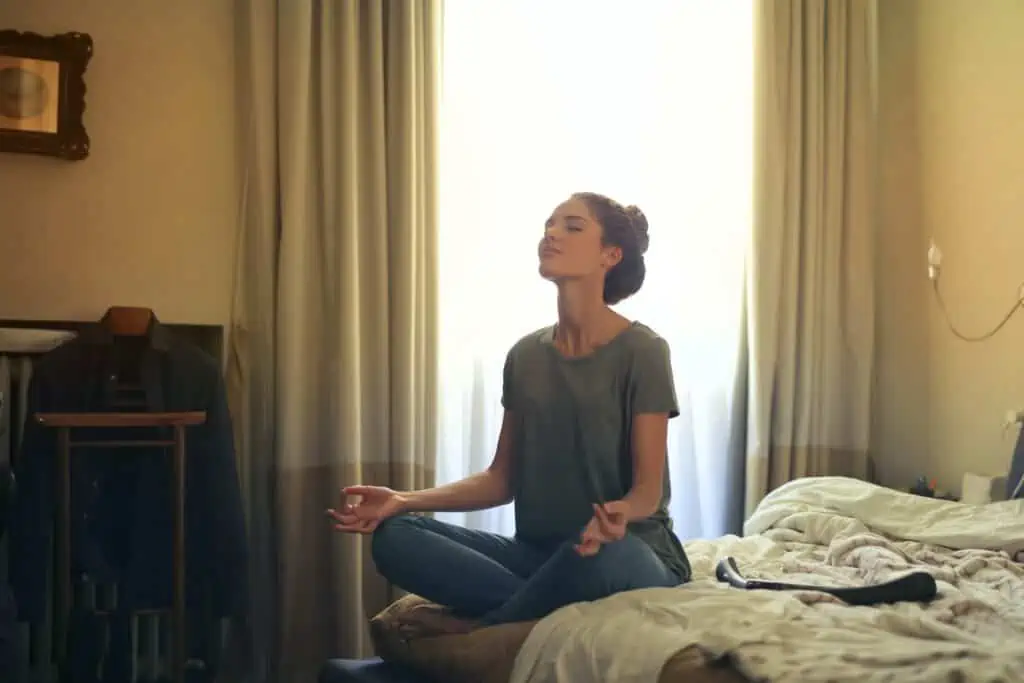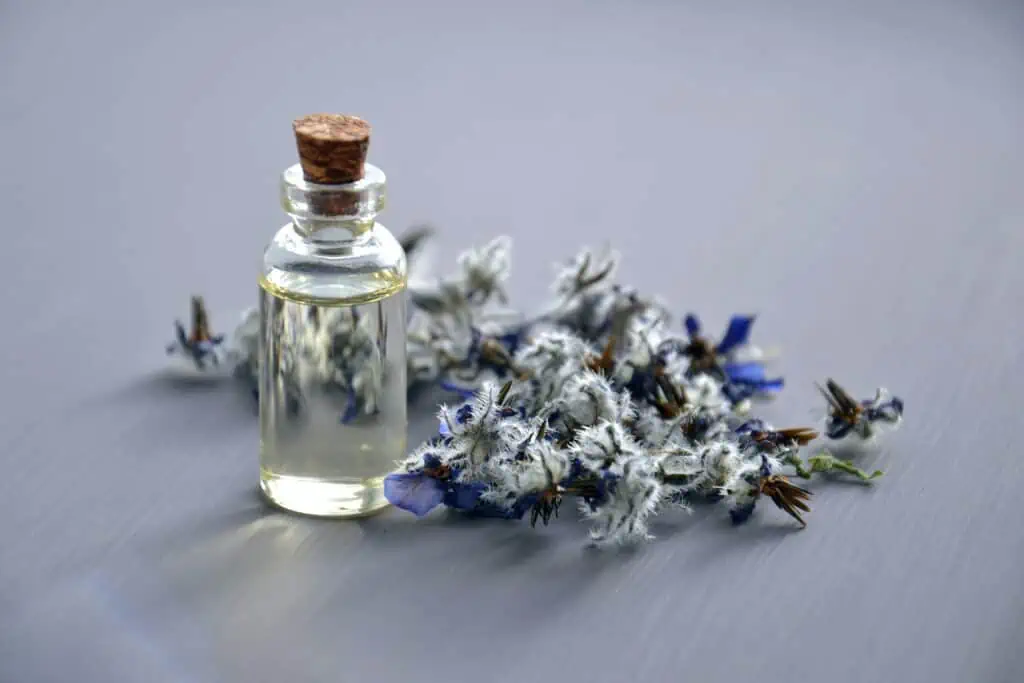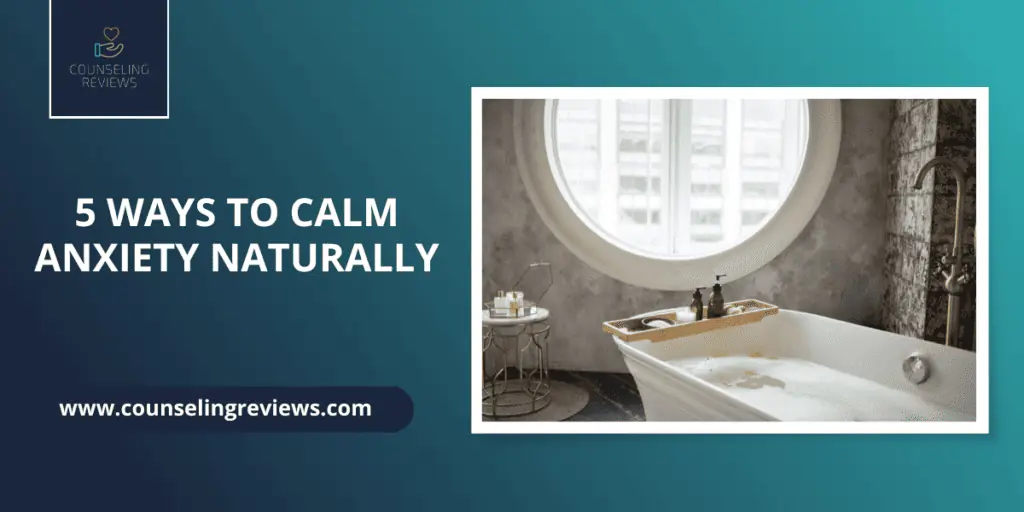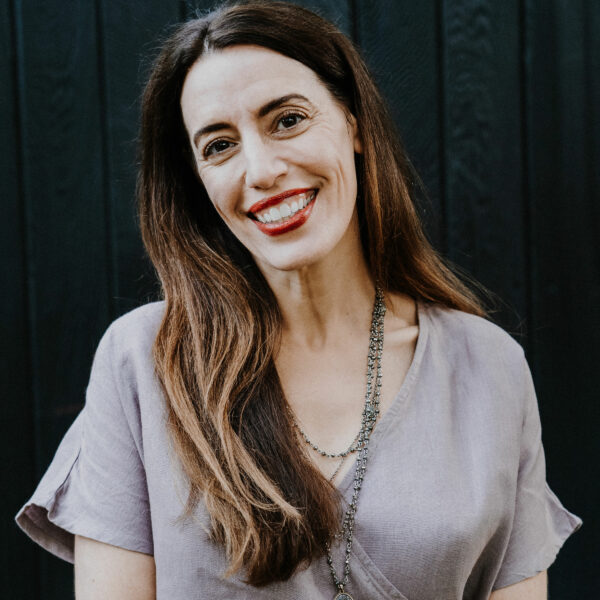Anxiety is a natural part of the human experience, however, many people can feel overwhelmed by anxiety when it begins to negatively impact their daily lives and relationships. When anxiety has become too much to handle, people often seek therapy or pharmaceutical interventions. While these solutions may work for some, they certainly don’t work for all, and it can be reassuring to learn, there are in fact numerous ways in which to manage and calm anxiety naturally.
Anxiety disorders are the most common mental health disorder and affect around 31.1% of adults living in the United States. Many experts believe this number is actually quite low for two important reasons.
For one, many people experiencing anxiety don’t seek support and therefore the data may be underrepresenting those who suffer in silence. Secondly, the National Institute of Mental Health utilized data from 2001-2003 to determine this percentage. This time period reflects a much different climate in America, a time before prolific mass shootings, a global pandemic, climate change weather-related disasters, social media, economic struggles, and more.
In comparison to American statistics, a European poll conducted during the same time as the American survey reported 13.6% of Europeans reported symptoms of an anxiety disorder. The most recent survey, out of these three polls, indicates 40% of Canadian adults reported symptoms of anxiety disorder. Though non-western countries have historically reported lower levels of anxiety than Westernized countries, globally, anxiety levels are on the rise.
Considering how many people are affected by anxiety worldwide, it is important to provide people with more options to treat anxiety. In this article, we will discuss natural remedies such as meditation, exercises, aromatherapy, mindfulness, and more.
Natural remedies for anxiety and depression
Meditation
Has been well researched and data indicates it can be as effective as pharmaceutical interventions at reducing and managing stress. There are many ways to meditate, from Transcendental Meditation to guided meditation, and everything in between. If you haven’t tried meditating before, try a few different techniques before deciding which one works best for you.
Relaxation Exercises
While most people are familiar with Yoga, there are many other relaxation exercises known to decrease and manage stress. Though Tai Chi is underrated in comparison to Yoga, it too has been researched and well-documented in relieving stress, reducing blood pressure, and increasing energy.

As a therapist, I am a big believer in exercising outside in nature to help reduce stress. This can include walking in your neighborhood, hiking, riding your bike, swimming, paddle boarding, and more. It is estimated that the average person spends 93% of their day indoors, with many studies indicating those with jobs outdoors experience increased mental health benefits.
Avoid Alcohol and Caffeine
Alcohol consumption offers immediate relaxation benefits for most, however, in the long run, it can end up becoming a go-to coping mechanism for dealing with difficult situations, and subsequently lead to chronic drinking and serious health problems such as liver damage.
In the short term, alcohol has been found to disrupt REM (Rapid Eye Movement) sleep, leading to feelings of fatigue and lower energy the following day. While a drink or two after work may not lead to dependency, or cause serious consequences, it remains a temporary fix with limited benefits.
Caffeine is a stimulant and is considered a psychoactive drug – the most widely used drug worldwide. The DSM-5 (Diagnostic Statistical Manual for Mental Disorders) considers various caffeine-related anxiety symptoms a “condition,” that requires further studying before an official diagnosable disorder can be determined. Clearly, caffeine is not a benign substance and is known to exacerbate symptoms of anxiety.

Caffeine in excess of 400mg/day may cause the following symptoms.
- Increased heart rate
- Irritability
- Nausea
- Decreased appetite
- Digestive issues
- Jitters
- Insomnia
As you can see, caffeine can mimic symptoms of anxiety and can also amplify existing symptoms. Though caffeine can wreak havoc for those with anxiety, most people can consume caffeine safely, without negative effects, if they consume the recommended 400mg or less of coffee per day. Keep in mind, a 16oz size Starbucks coffee carries around 360 mg of caffeine and caffeine can also be found in chocolate, teas, and sodas.
Aromatherapy
Aromatherapy is the use of aromatic materials to help improve well-being. Pure essential oils are the most common form of aromatherapy and are used in a variety of ways to help reduce anxiety. From adding essential oils during a massage, utilizing a home diffuser, or wearing an aromatherapy bracelet, there are several options in which to incorporate aromatherapy into your daily practice.

Though there are mixed research reviews about aromatherapy’s actual benefits, the existing research looks promising, with some studies finding a reduction in stress for students and veterans. The essential oils most associated with stress reduction include lavender, rose, ylang-ylang, chamomile, and bergamot.
Time Management Strategies
In today’s fast-paced world, it is extremely difficult to fend off distractions and make the most of our time. From temptations of social media to the expectation to text and email back quickly, our time is more fractured than ever before. More distractions and responsibilities add additional stress and anxiety.
The best way to combat this feeling of overwhelm, is to better manage our time. Below are a few tips you can employ to help you feel in control of your day.
- AppBlock or Freedom
Fight fire with fire and use one of these apps to help prevent distractions from other apps. AppBlock allows you to designate certain times to block distracting apps. The Freedom app is a more expansive distraction blocker and syncs across all devices, giving you control over when you want to allow time for emails, social media, and more.
- Compartmentalize your workweek
This can be easier said than done considering what type of work you are in, but most jobs can be broken down into chunks of tasks for certain times or days of the week. It can be more efficient to tackle similar tasks at once than try to address them as they arise. For instance, if your job entails reaching out to customers and you are most social during the morning hours, use the morning to do those tasks and set aside the afternoon to perform more administrative tasks.
- Breaks are important
Though it can be tempting to keep running on the hamster wheel, breaks have been shown to increase productivity – however – some breaks are better than others. Scrolling on your device, unfortunately, does not constitute a productive break. Walking outside, journaling your thoughts, stretching, or simply daydreaming, are all considered beneficial to helping your mind rest and reset.
- Prioritize
It can sound overly simplistic, however, few of us actually address our daily tasks in order of priority. More often than not, we chose the tasks we want to do first and save the more imperative ones for last. If planning out the week feels too overwhelming, create a daily task list and prioritize each task from the most important to the least important.
Other treatment options
Holistic healing for anxiety
The term holistic means to treat the whole person, physically, socially, mentally, and environmentally. When we suffer from stress and anxiety, it is not enough to just treat one aspect of ourself and instead, we must treat our entire personal universe. An example of holistic treatment for anxiety would look something like this…
Massage for the stress stored in the body.
Joining a book club to foster connection and community.
Seeing a therapist or joining a support group to help alleviate mental health stressors.
Arranging our environment (home, office) to be less stressful, which may include organizing, utilizing calming paint colors, or eliminating distractions.
As you can see, holistic treatment incorporates all aspects of a person’s life and acknowledges the interconnectedness of all pieces. If the body is full of stress, this will affect the mind and so on.
Homeopathic remedies for anxiety
Homeopathy is based on the belief that the body can heal itself and healing is best aided by natural substances, typically plant-based “medicines.” Homeopaths believe Western medicine may cure the symptom, but not necessarily the cause – and – the person must heal from both the ailment and the Western medicine itself.
CBD (Cannabidiol, from Cannabis plant) has become more popular recently and research has shown promising data to support it’s positive effects for reducing stress. CBD is legal in all 50 states as of 2018, and does not produce any psychoactive effects like marijuana. There are thousands of companies selling CBD and in various forms including gummies, pills, drinks, vape pens, and more.
Though other homeopathic medicine such as Valerian root has been shown to reduce stress, it can interfere with other medications and can cause nightmares for some people. CBD is a strong contender for homeopathic remedies, as it doesn’t appear to have negative side effects or interfere with other medications. As always, check with a homeopathic practitioner to make sure your choice of treatment does not interfere with any medical conditions or medicine you are taking.
Mindfulness
Mindfulness is based on the belief that if we slow our minds down and so our best to stay present, we can obtain peacefulness within. Mindfulness might incorporate other practices such as meditation, deep breathing, stretching, and more. Focusing on the present, and what we can actually control in the moment, helps to alleviate stress but requires practice and repetition to reap the most benefits.
Frequently Asked Questions
When should I see a doctor for anxiety symptoms?
You should see a doctor for anxiety as soon as you believe your anxiety is impacting your daily life and/or relationships negatively. No matter the mental health issue, it’s always a good idea to see a doctor to rule out medical causes.
How do I get rid of anxiety?
Anxiety is a normal part of human life but requires treatment when it begins to interfere with a person’s daily life. Circumstantial anxiety, such as anxiety before a presentation or a test, is limited and most likely doesn’t warrant treatment. Anxiety that is more generalized, can negatively impact a person’s life and requires supportive treatment.
What is the fastest way to cure anxiety?
The answer will be different for each person and circumstance. For someone who is anxious when they fly, homeopathic medicine might be the fastest way to alleviate their anxiety. For someone with social anxiety, ongoing support, such as daily meditation and regular therapy, may be the most efficient way in which to manage their anxiety.
Conclusion
Anxiety is a common mental health condition and everyone has or will experience anxiety symptoms at some point in their lifetime. Support and treatment are available and don’t have to take the conventional forms of pharmaceutical medications or traditional talk therapy. When anxiety begins to interfere with your life, it’s time to get the support you deserve. Take comfort in knowing you are not alone and there are many ways in which to treat your anxiety.





